St PETER’S Educational Project begins at 12 months and continues in the same direction and in a coherent way until the completion of the International Baccalaureate Diploma Program (18 years).
Children from 12 months old can join their educational journey with us, with the benefits of sociolinguistic immersion in a climate that favors creativity, independence and learning.
St PETER’S students complete their school education with two certifications: The International Baccalaureate, and the corresponding certification from the Spanish Ministry of Education.
As far as language acquisition is concerned, they obtain official Cambridge certificates in English, level C in Catalan, level C in Spanish, and DELF B2 in French.
Age | IB | Spanish Curriculum | St Peter’s |
|---|---|---|---|
| 1 | - | P1 | Nursery 1 |
| 2 | - | P2 | Nursery 2 |
| 3 | PYP- Early Years | P3 | Foundation 3 |
| 4 | PYP- Early Years | P4 | Foundation 4 |
| 5 | PYP- Early Years | P5 | Foundation 5 |
| 6 | PYP1 | 1º Primaria | Year 1 |
| 7 | PYP2 | 2º Primaria | Year 2 |
| 8 | PYP3 | 3º Primaria | Year 3 |
| 9 | PYP4 | 4º Primaria | Year 4 |
| 10 | PYP5 | 5º Primaria | Year 5 |
| 11 | MYP1 | 6º Primaria | Year 6 |
| 12 | MYP2 | 1º ESO | Year 7 |
| 13 | MYP3 | 2º ESO | Year 8 |
| 14 | MYP4 | 3º ESO | Year 9 |
| 15 | MYP5 | 4º ESO | Year 10 |
16 | DP1 | 1º Bachillerato | YEAR 11 |
| 17 | DP2 | 2º Bachillerato | Year 12 |
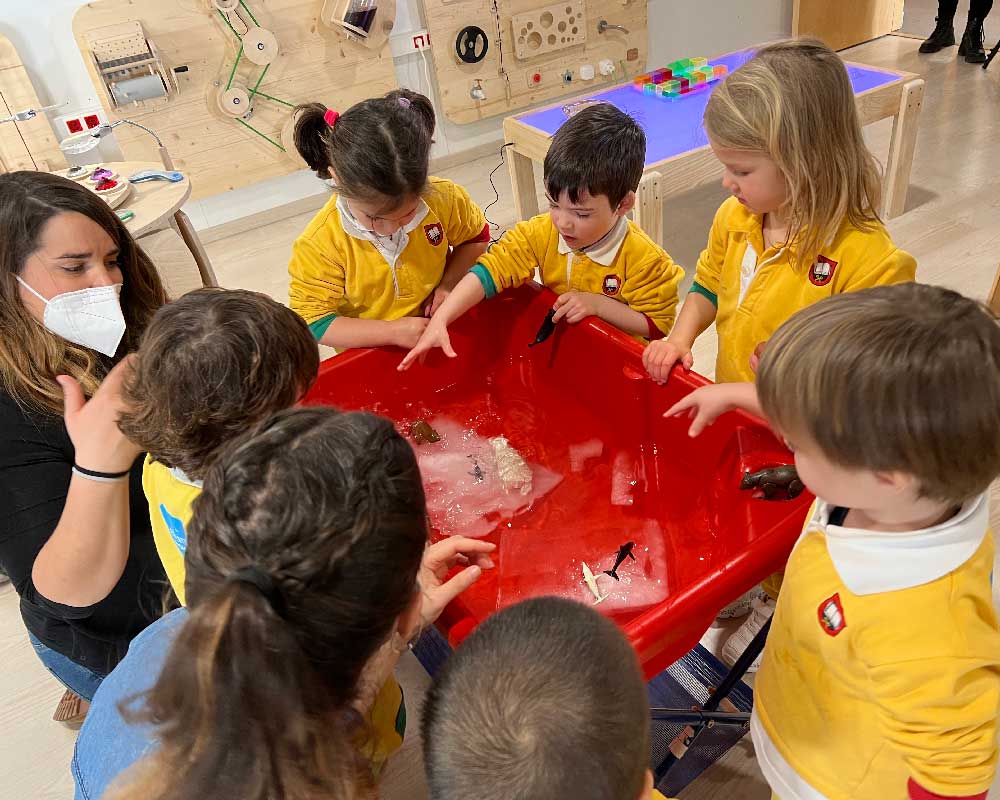


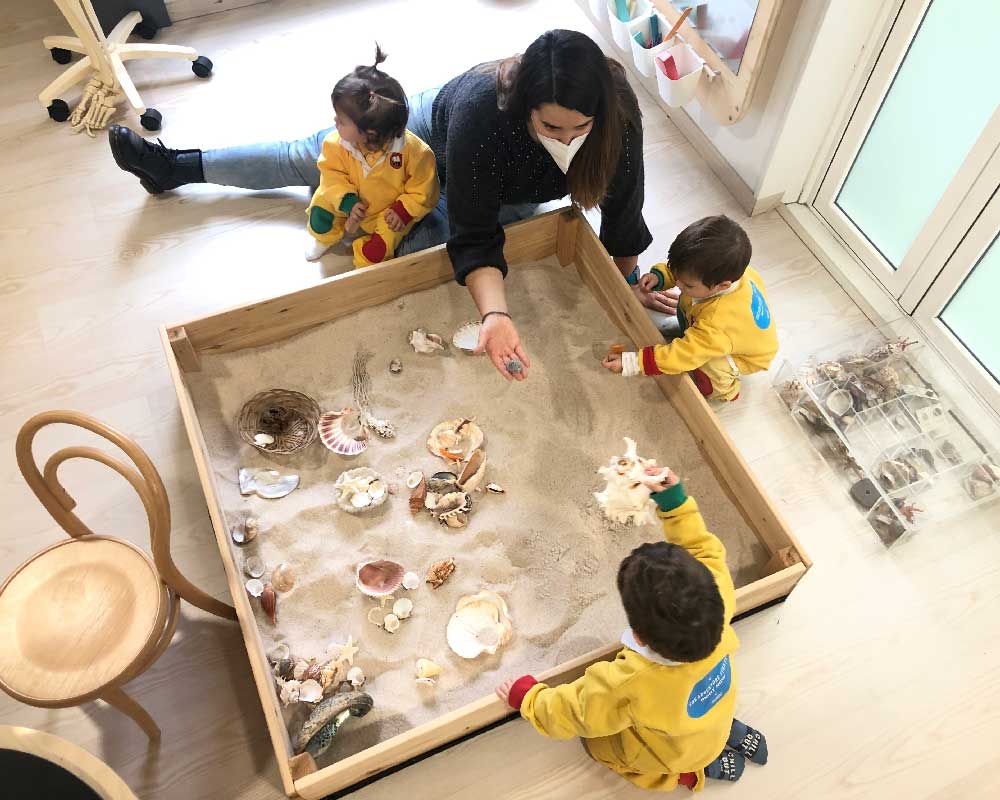

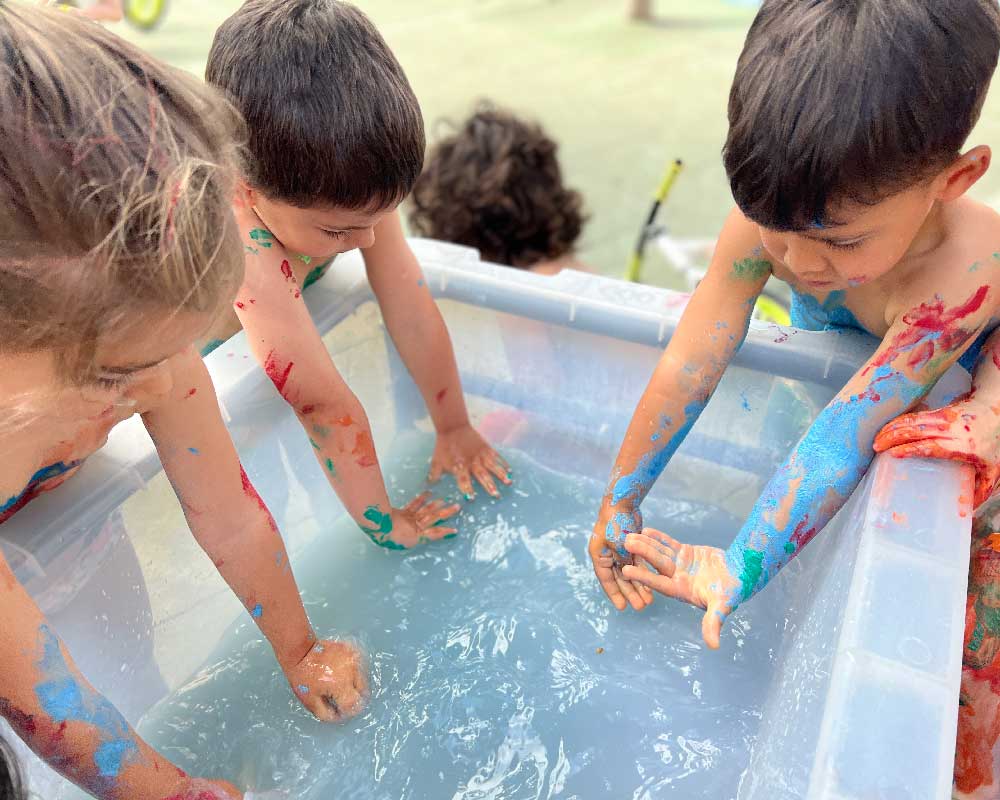

Inquiring through play is the engine of learning at this stage, in which families and children grow together. Through play children begin to discover who they are and how they connect to those around them.
We follow an open space learning approach where children can self-direct their learning. The educators are responsible for preparing the environment and creating invitations to play. Children practice symbolic exploration and expression and naturally develop their initial language and social ability.
The Nursery Open Space offers an atmosphere of mutual respect, affection and trust, flowing from inside the classrooms to the outdoor education playground, or our Lab05.
Care hours
From 8:15 a.m. to 4:30 p.m. for families who need it.
Our own kitchen
All food is prepared on site by the Saned professionals..
A nurse
A professional nurse is responsible for health and safety protocols of the center. She can administer medication to the students who need it, treats minor injuries, monitors the vaccination protocol and communicates to families in case of any illness symptoms or discomfort in children.
Laundry
The school has a laundry service to help in case of any small incidents with the students’ clothes.
Transport
School bus service offered by Grand Lord (Barcelona, Sant Cugat, Castelldefels) for students from 2 years old.
Swimming
From 2 years old, during school hours, swimming classes at Penguins.
Collaboration with the families
A secure virtual portal (Seesaw) is available for families to follow and participate in the educational experiences that their children live daily, their development and their progress.y
The PYP framework is defined by six transdisciplinary learning themes that transcend boarders connecting to what is real in the world. These are: Who we are, Where we are in place and time, How we express ourselves, How we organize ourselves, How the world works and Sharing the Planet.
These transdisciplinary themes explore the knowledge derived from six disciplinary areas: Social sciences, Natural sciences, Technology, Languages, the Arts, Mathematics and Personal, Social and Physical Education.
At St Peter’s, all the subjects are taught through English. Spanish and Catalan are introduced gradually in Primary: Spanish 4h per week, Catalan once a week until Y4 and 2h per week from Y5 onwards; French 2h per week from Year 5.
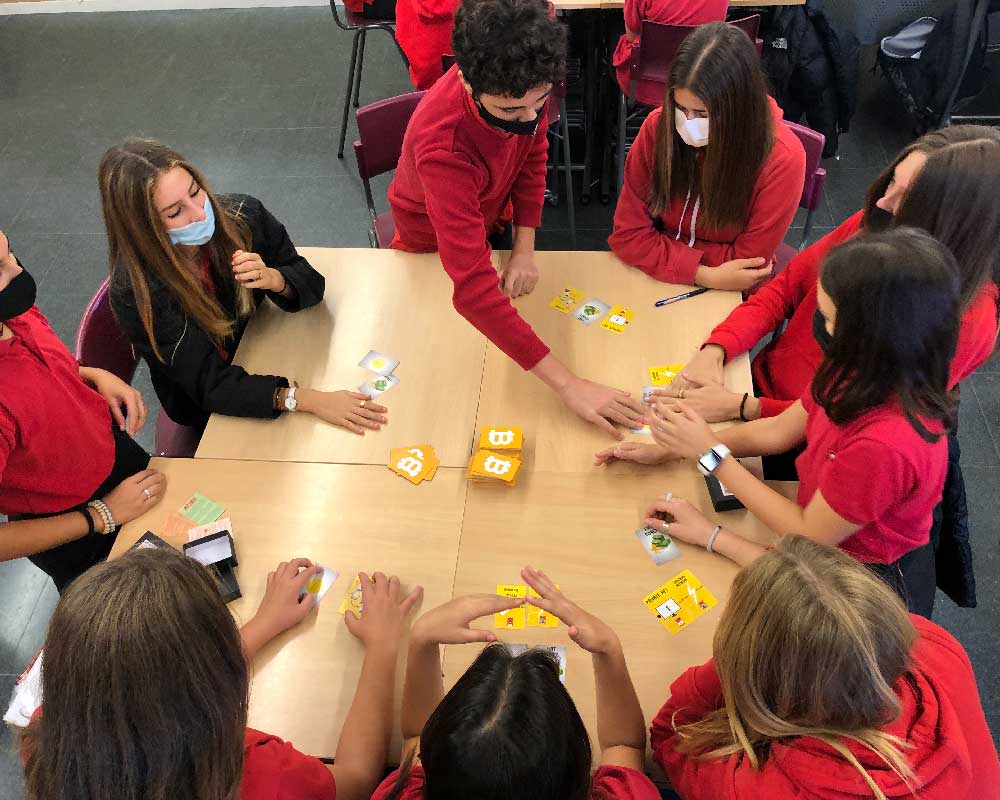


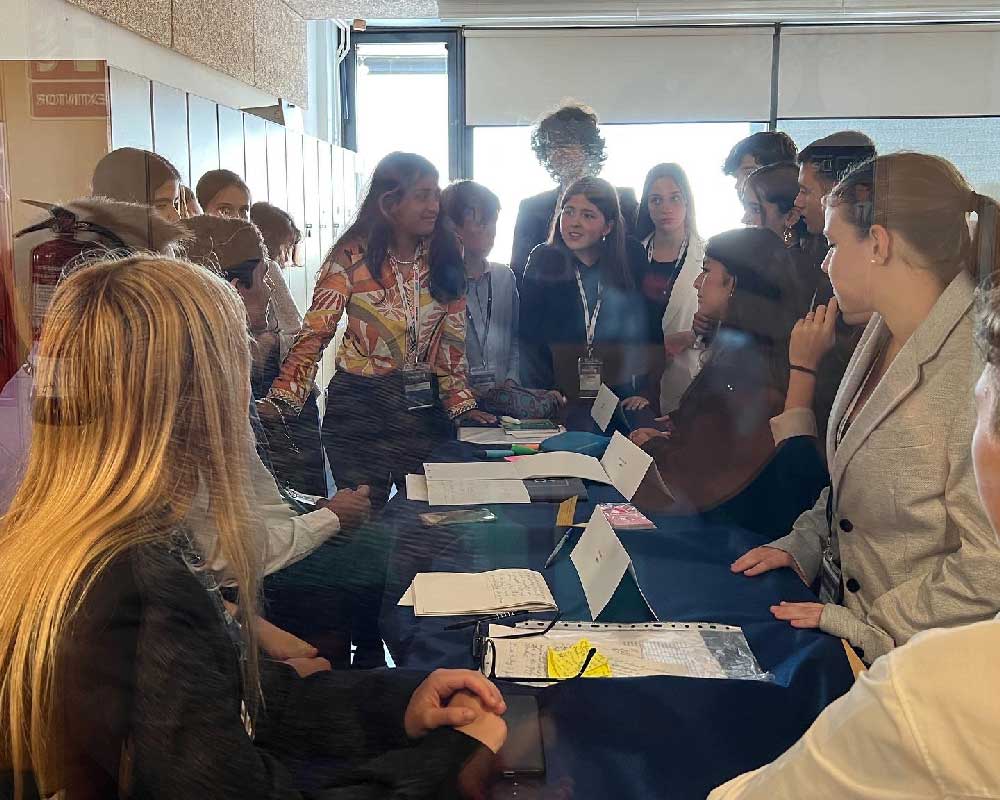


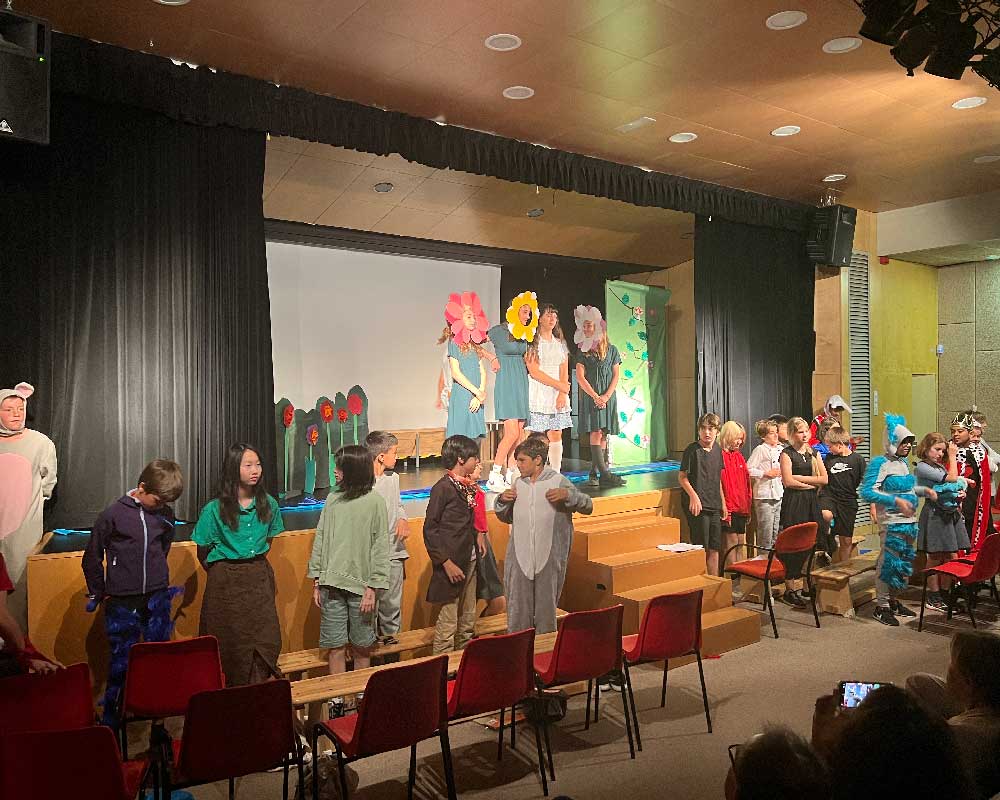
This program encourages the students to be risk-takers, critical thinkers, and creative problem solvers who are able to apply what they’ve learned in the classroom to real-world. It helps the students in acquiring researching, thinking, communicating, and management abilities. Our pupils must have a great deal of regard for cultural diversity and global commitment.
There are six wide areas of knowledge: Mathematics, Sciences, Individuals and Societies, Physical and Health Education, Design, Arts, Language and Literature and Language Acquisition.
Program designed to address the intellectual, social, emotional and physical dimensions of student well-being that is recognized and respected by prestigious universities around the world.
Curriculum organized into 3 core subjects – Theory of Knowledge, Creativity, Activity, Service and Extended Essay – and 6 subject groups:
Studies in Language and Literature, Language Acquisition, Mathematics, Science, Arts, and Individuals and Societies.
Students complete their curriculum with participation in local and international projects and activities that help them develop diplomatic, investigative, social and personal skills.









To start the admissions process, please fill in the following form. Our admissions officers will contact you soon: